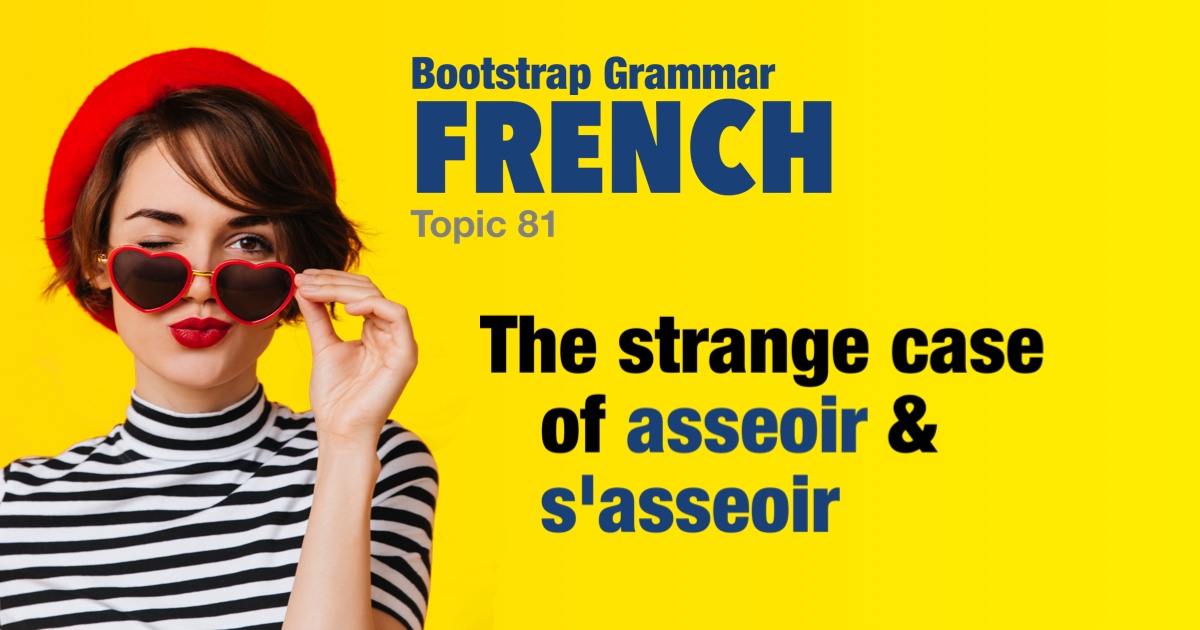French grammar - The strange case of asseoir and s'asseoir |
|||
|
|||
The verb asseoir means 'to seat (someone)'. And it's reflexive counterpart s'asseoir means 'to perform the action of sitting oneself down'. Technically these are -IR verbs but they are truly irregular. This verb (and many other words) were 'reformed' in the 1990s. So asseoir became assoir. However, despite the official change, the modernized forms have not really taken hold with the French public, particularly the plural conjugations. -- In particular, the modernized nous assoyons and vous assoyez are strenuously avoided. Here are the old & new conjugations - you are likely to encounter both forms: • j'assieds & j'assois • t'assieds & t'assois • il assied & il assoit • nous asseyons & nous assoyons [avoid] • vous asseyez & vous assoyez [avoid) • ils asseyent & ils assoient If you are using the companion app, you will hear in the examples that the pronunciations are also different. But both are acceptable. |
| Examples: | |
|
Je m'assieds sur ce fauteuil.
I sit on this armchair.
|
|
|
Tu t'assieds sur le tabouret.
You (familiar) sit down on the stool.
|
|
|
Il s'assied sur cette chaise.
He sits down on that chair.
|
|
|
Nous nous asseyons sur la table basse.
We sit down on the coffee table.
|
|
|
Vous vous asseyez sur le canapé.
You (formal) sit down on the sofa.
|
|
|
Ils s'asseyent sur le repose-pied.
They sit down on the footstool.
|
|
|
Je m'assois sur le banc.
I am sitting on the bench.
|
|
|
Tu t'assois sur la chaise longue.
You (familiar) sit on the lounge chair.
|
|
|
Elle s'assoit sur la pelouse.
She is sitting on the lawn.
|
|
|
Nous nous asseyons sur le mur du jardin.
We sit on the garden wall.
|
|
|
Vous vous asseyez sur la couverture de pique-nique.
Are you (formal) sitting on the picnic blanket.
|
|
|
Ils s'assoient par terre.
They are sitting on the ground.
|
|
|
J'assieds le bébé sur la chaise pour le repas.
I seat the baby on the chair for the meal.
|
|
|
Pourquoi asseyez-vous les élèves par terre ?
Why are you (formal) seating the students on the ground?
|
|
|
Les gens qui s'asseyent à cette table sont mes amis.
The people who are sitting at the table are my friends.
|
|
 |
|


 Old form
Old form
